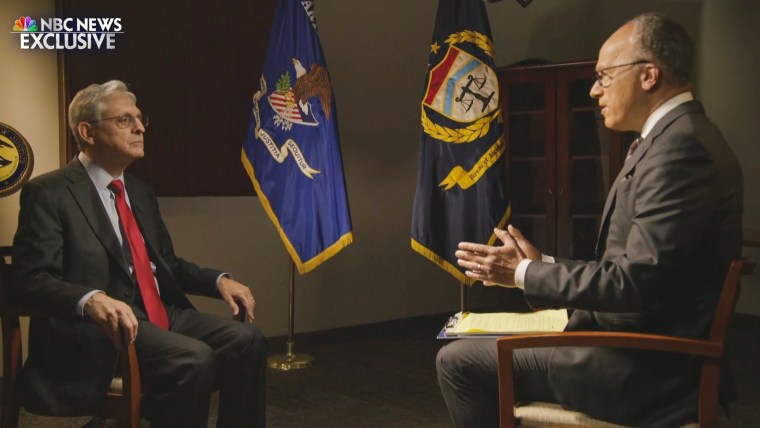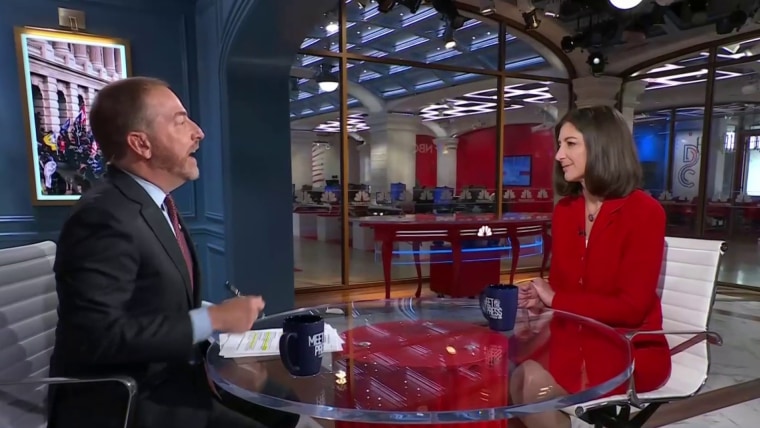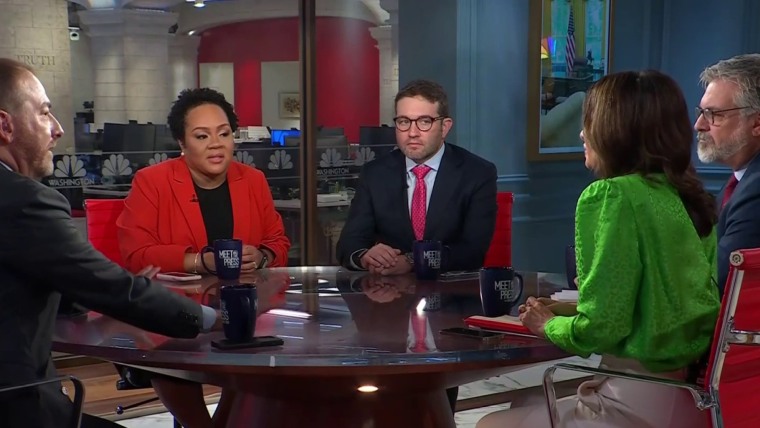
PITTSBURGH – House committee hearings Jan. 6 appear to be moving forward in some of this fall’s most competitive congressional districts in key states, although the panel’s work does not appear to have a major impact on how the voters see the congressional and gubernatorial candidates.
One of the biggest questions surrounding the Jan. 6 committee is whether voters, especially in states like Pennsylvania and Arizona, have heeded its findings. Of more than a dozen voters — Republicans, Democrats and those who identify as independents — interviewed in three hotly contested swing congressional districts in those two states, most indicated they were paying at least some attention to the committee Their conclusions, however, differed, with some feeling the committee had strengthened the case for then-President Donald Trump’s culpability in the riots, while others felt it amounted to congressional overreach.
Joseph Ganter, 73, of Ross Township, Pennsylvania, has been paying close attention to the committee, which is investigating the Jan. 6 riots at the Capitol and the former president’s efforts to nullify the 2020 election and his recent hearings Ganter says he voted for Trump in 2016, Joe Biden in 2020 and now says he’ll never vote for president again, disillusioned with both.
“In my opinion, he started it,” Ganter said of Trump, speaking to NBC News ahead of last Thursday’s prime-time hearing, which he said he planned to watch. “He got into his own [Twitter] and he texted and let it go for, what, 90 minutes or something? And he let it go and I thought it was very wrong that he didn’t do anything.”
Ganter, a longtime registered Democrat who now considers himself an independent, lives in the heart of one of the most competitive House districts this fall, Pennsylvania’s 17th Congressional District. He says he doesn’t think the committee will lead the Justice Department “to do a damn thing” when it comes to potential consequences for Trump.
“Even though Trump was guilty of a lot of things, they won’t catch him because they’re afraid he’ll disrupt the country again,” he said. “So you judge for yourself.”
Robert, 72, of North Hills, who asked that his last name be withheld to share his views on sensitive political issues, told NBC News that he had watched the committee’s first hearing, caught some of his second and closely followed the news coverage.
“I think people have really started to see how desperate Trump was to stay in office,” said Robert, a lifelong Republican before voting for Biden in 2020. “And it seems like he would have gone to almost any extreme to stay in office and would have gone to great lengths to pull whatever strings he could. He thought maybe he was above the law. Now things are coming back to bite him.”
Both men are the kind of voters who could go a long way in deciding some of this fall’s most hotly contested elections, including Senate and gubernatorial races in Pennsylvania and Arizona. And they are among the millions of Americans who have been watching the hearings on January 6; Nielsen estimates 17.7 million people watched Thursday’s primetime audience, and overall audiences have averaged 13.1 million viewers each.
But the hearings didn’t appear to be a big factor in how either man approached the vote this fall. Both said they were leaning toward state Attorney General Josh Shapiro, a Democrat, in the Pennsylvania governor’s race against state Sen. Doug Mastriano, a Republican, who was outside the Capitol on Jan. 6 and has fueled electoral conspiracy theories. In the Senate race, Robert said he was “deeply divided” between Democrat Lt. Gov. John Fetterman and Republican Mehmet Oz, while Ganter said Oz’s limited history in the state was painting his view of the race.
The nonpartisan Cook Political Report rates the open seat in his home district outside Pittsburgh as a lottery. NBC News also visited Pennsylvania’s 8th Congressional District around Scranton, where Cook rates Democratic Rep. Matt Cartwright’s re-election as a toss-up, and Arizona’s 4th Congressional District, east of Phoenix, where the Rep. Greg Stanton, D-Ariz., is running for re-election in a contest the publication sees as leaning Democratic.

At a campaign event last week in northwestern Pennsylvania, Shapiro spoke at length about Mastriano’s presence outside the Capitol on Jan. 6, arguing that Mastriano is “unfit” to oversee the state police because of his actions that day.
“When the police looked at Mastriano and the others and said stop, he just kept walking,” Shapiro added.
Shapiro said it was difficult to assess the impact the Jan. 6 hearings had on his career, though he would continue to press Mastriano’s ties to Jan. 6 as part of his campaign.
“I think that makes him unfit,” he said. “I stand with law enforcement, respecting law enforcement. He sided with the insurrectionary mob.”
Recent polls have shown that the hearings may be making a difference in how some voters view the Jan. 6 attack, but, as with Ganter and Robert, they are not making it a priority as a ballot issue. An NPR/PBS Newshour/Marist poll released before the committee hearing last week, with a margin of error of 4.4 percentage points, found that 80 percent of Democrats, 55 percent of independents and 44 percent of Republicans are lending at least a little attention to hearings.
The hearings have coincided with a surge in independents now calling the riot “an insurrection and a threat to democracy,” with 52% of independents now saying so, up 9 percentage points since December. Republicans, however, have barely budged in their views on the attack, with just 12% now calling it an insurgency, compared with 10% in December. And while 92 percent of Democrats and 57 percent of independents say Trump bears a “great deal” or “a fair amount” of blame for Jan. 6, only 18 percent of Republicans said the same.
Still, only 9% of voters described the hearings as a top voting issue, with Republicans worrying more about inflation, Democrats worrying more about abortion rights after the Supreme Court overturned lar Roe v. Wade and the independents care more about both.
In the meantime, a Reuters/Ipsos poll released before last week’s hearing found that 40 percent of Republicans believed Trump was at least partially responsible for Jan. 6, up 7 percentage points from their June poll. Only 1 in 4 respondents said they had not followed the hearings at all. The poll had a margin of error of about 4 percentage points.
In Arizona’s 4th Congressional District, two voters who identified as independents told NBC News they had at least followed Arizona House Speaker Rusty Bowers’ testimony before the panel, praising him but adding who were still undecided about how they would vote this fall. Local Republicans, however, were more dismissive of the proceedings.
Peggy Marchi, 70, of Mesa, told NBC News that she and others she knows in the area did not prioritize the Jan. 6 hearings.

“I think they want things done at the border,” he said. “I think they want the economy, the gas prices. They want all the same things. And they’re not interested in seeing Jan. 6, what they’re putting on TV. To me, that’s a wasted effort and everyone with I’ve spoken says it’s a waste of time and money.”
Carol Van Kley, an 81-year-old Republican from Mesa, said she didn’t care much about the committee, but she was sure others did.
“I’m sure a lot of people are paying a lot of attention to it,” he said. “The Democrats. But I don’t know. I think people are very confused right now.”
The most recent hearing included the committee’s investigation into the more than three hours that passed between when the riot began and when Trump posted a video on Twitter telling his supporters to “go home “. The panel has sought to prove Trump’s culpability for the attack by linking his campaign lies to his Jan. 6 call to action, which many supporters heeded.
In her closing statement Thursday, Rep. Liz Cheney, R-Wyo., the committee’s vice chairwoman, made a direct appeal to Republicans about why they should be angry about Trump’s conduct. Almost all of the witnesses who spoke during the committee hearings were also Republicans who at one point supported Trump: They worked in his White House, administration or campaign, or were elected state party leaders who they were facing pressure to cancel the elections before January 6. .
“Donald Trump knows that millions of Americans who supported him would stand up and defend our nation, if it was threatened,” he said. “They would put their lives and their freedom on the line to protect it. And he’s taking advantage of his patriotism, his sense of justice, and on January 6, Donald Trump turned his love of country into a weapon against the our Capitol and against our Constitution.”
In an interview after the latest hearing, Russ Wend, a 64-year-old Republican from Luzerne County in Pennsylvania’s 8th Congressional District, said everything he heard from the panel was the same over and over again.
“I don’t see them doing anything,” he said. “They keep repeating the same thing.”
Another county Republican, Mark Laverdi, 55, said he believed that while there may have been some wrongdoing on Trump’s part, the committee went too far.
“I think they’re going a little overboard,” he said. “I mean, he’s out of the office. You can’t say, ‘Leave the man alone,’ but I just think they’re overreacting. Let a dead dog lie, you know?”
Doug Pickens, a 68-year-old Democrat from Pittsburgh, said he has watched all the hearings and his friends are paying close attention. But he acknowledged that many Republicans are unlikely to be swayed by the proceedings.
“I hope there are 15, 20% undecideds who will look at it with an open mind,” he said. “And then make a different decision.”
[ad_2]
Source link





